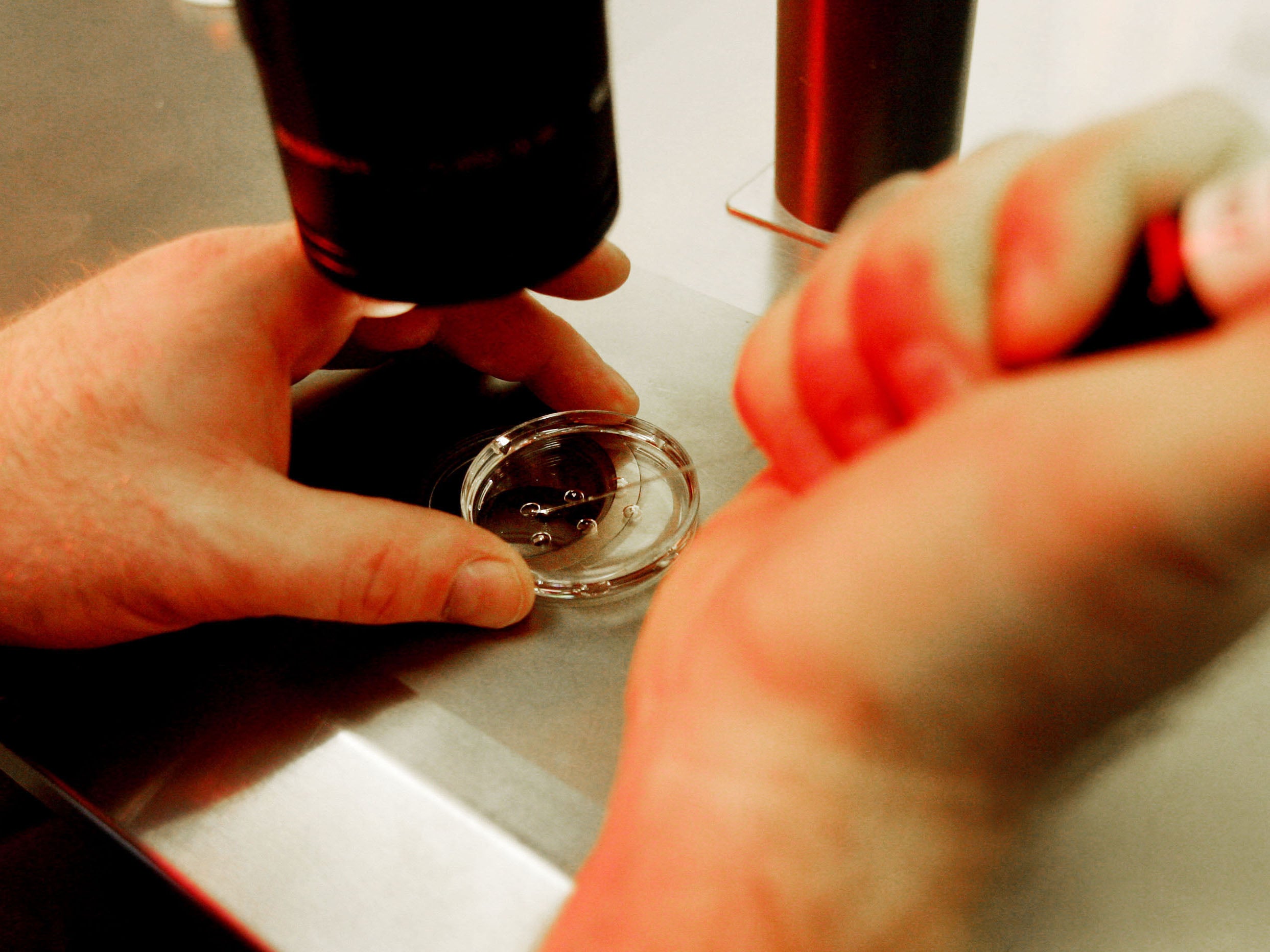'Chemical surgery' performed for first time on human embryos
Researchers removed the blood disorder beta-thalassemia

Scientists have carried out "chemical surgery" on human embryos to successfully remove a disease for the first time.
Researchers at Sun Yat-sen University in China used a technique called base editing to reprogramme a fault in a single base in our genetic code.
The experiments were carried out in laboratory-made embryos to remove the disease beta-thalassemia, an inherited blood disorder which can cause weakness, fatigue and lead to abnormal blood clots.
In the study, published in the journal Springer, the authors wrote: “β-Thalassemia is a global health issue, caused by mutations in the HBB gene.
“Among these mutations, HBB −28 (A>G) mutations is one of the three most common mutations in China and Southeast Asia patients with β-thalassemia.
“Correcting this mutation in human embryos may prevent the disease being passed onto future generations and cure anemia.”
The team edited one of the “fundamental building blocks of DNA” - the four bases adenine, cytosine, guanine and thymine (A, C, G and T), the BBC reported.
Combinations of these four bases essentially instruct how the human body works.
The blood disorder beta-thelassemia is caused by a change to a single base in the genetic code.
Using base editing, the researchers changed a G to an A to remove the blood disorder.
Base editing, pioneered by Harvard University Professor David Liu, is a new genome editing technology that allows the irreversible modification of genes within organisms.
He described the process as “chemical surgery”.
Join our commenting forum
Join thought-provoking conversations, follow other Independent readers and see their replies
0Comments